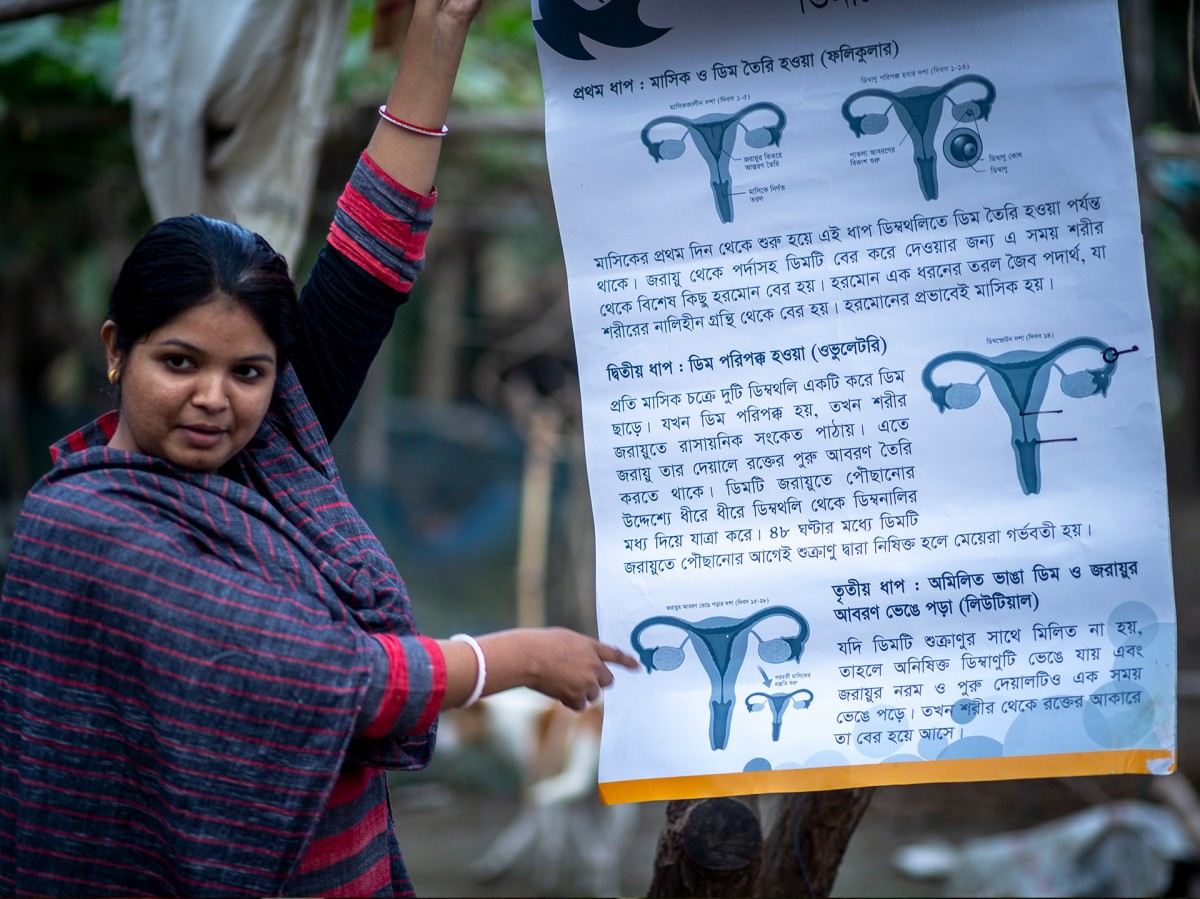Ritu
Improve the menstrual health and hygiene and well-being of school girls during their periods by giving them the right information, access to appropriate toilets and biodegradable sanitary pads.

About the programme Ritu
More than one fifth of the world’s population consists of women of reproductive age. On average, a woman spends seven years of her life menstruating, making menstruation a natural and essential part of the reproductive cycle. It is an essential human right to have the ability to manage menstrual health with adequate knowledge, safety, and dignity and without stigma.
However, when menstruation begins many women, girls and other menstruators in low-resource settings aren’t well-prepared for it and lack knowledge of other forms of bleeding. Cultural and religious norms around menstruation create barriers for women to participate in normal daily life, go to school and work or participate in religious ceremonies. Furthermore, women and girls lack access to the information, products and infrastructure that is needed to manage menstruation with dignity. This has a severe impact on their health, well-being, and the realisation of their rights.
It should be noted that adolescent girls, and girls and women living with a disability, are especially vulnerable to negative outcomes related to menstruation, including effects on their overall self-esteem and confidence.
The programme is designed and implemented by Simavi, RedOrange and TNO (a Dutch technology and research company) and is funded by the Royal Embassy of the Kingdom of the Netherlands.
Ritu is a girls' name and means ‘season’ in Bengali and is also used to indicate menstruation in Bangladesh. A suitable name for a programme that aims to promote improved Menstrual Health (MH) among school-going girls in Bangladesh.
Fact:
Every day, 800 million people menstruate
About 500 million women don't have what they need to manage their periods
On average, a woman spends seven years of her life menstruating
Impact of the programme
The objective of Ritu is improving menstrual hygiene and related well-being of girls between 10 and 13 years in Netrakona, Bangladesh. The specific outcomes of the programme are:
- Increased knowledge and improved attitudes and practice on menstrual hygiene of girls, boys, men and women.
- Increased commitment towards menstrual hygiene management by the government and civil society in Bangladesh.
- Women and girls have access to better Menstruation Hygiene Management (MHM) facilities at schools and affordable (biodegradable) sanitary napkins.
Approach of the programme
The Ritu Programme consists of three main elements:
- the interventions in Netrakona that are directly targeted at schoolgirls,
- a national communication and advocacy campaign,
- and the development of a biodegradable sanitary pad.
The programme started with a six-month inception phase, that provided us with the opportunity to consult existing rigorous evidence on menstrual health programming in Bangladesh and on a global level. Based on this information, gaps were identified and used to design our formative research. Based on the information gathered, the final mix was further defined in a series of workshops with the partners and with the support of the Impact Centre Erasmus University.
Budget: €3.514.418, Duration: 5 years, Country: Bangladesh
In-country partners
Do you want to know more about our programmes? Our programme team is happy to support!
More programmes:
The Perfect Fit
Designing and distributing reusable menstrual pads in a rural area and educating men and women about sexual rights and menstrual health.
Marriage: No Child’s Play
Provide youngsters, especially girls, with information and better access to services to make informed decisions about marriage.



